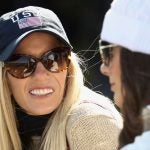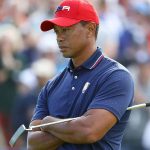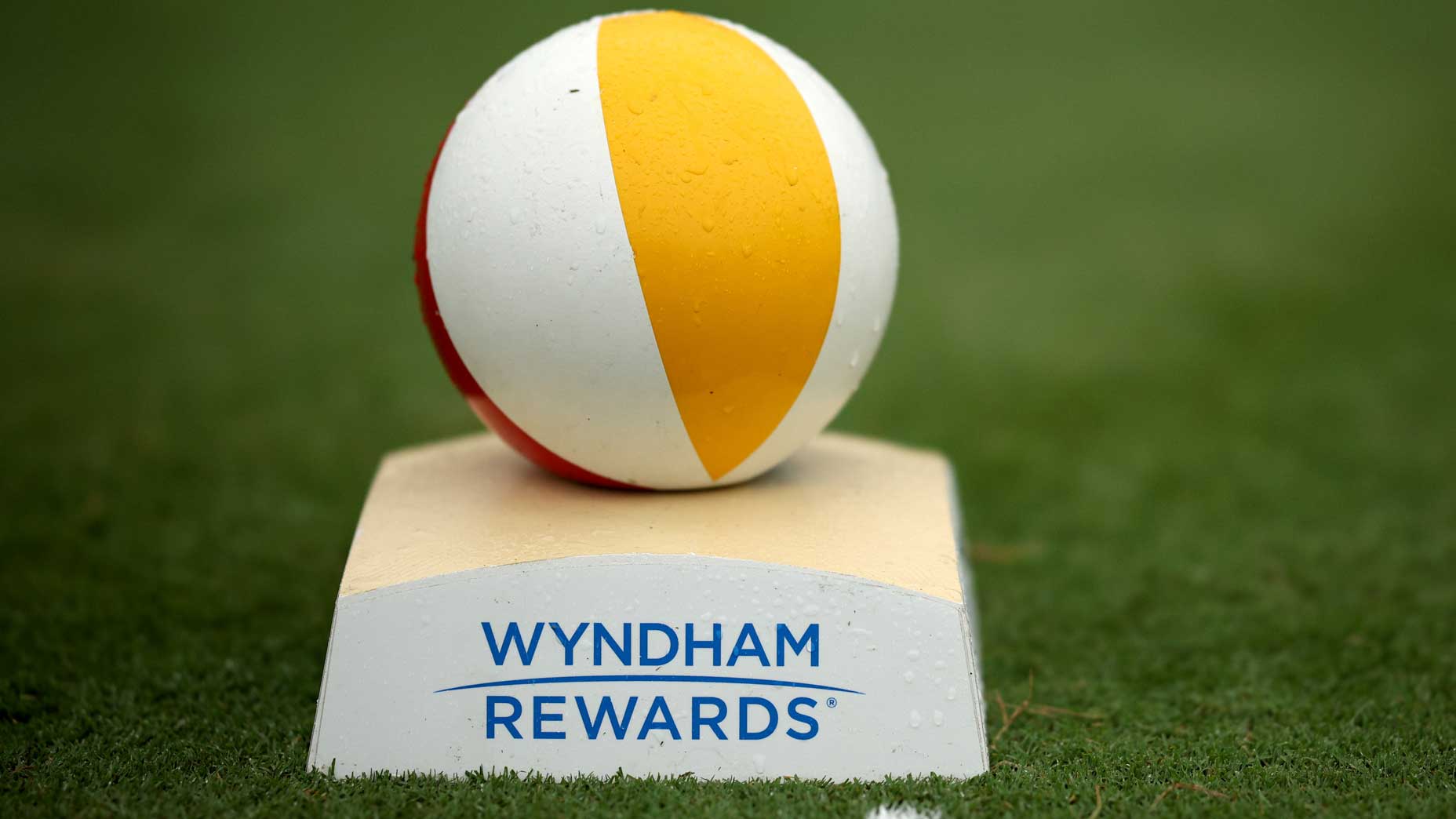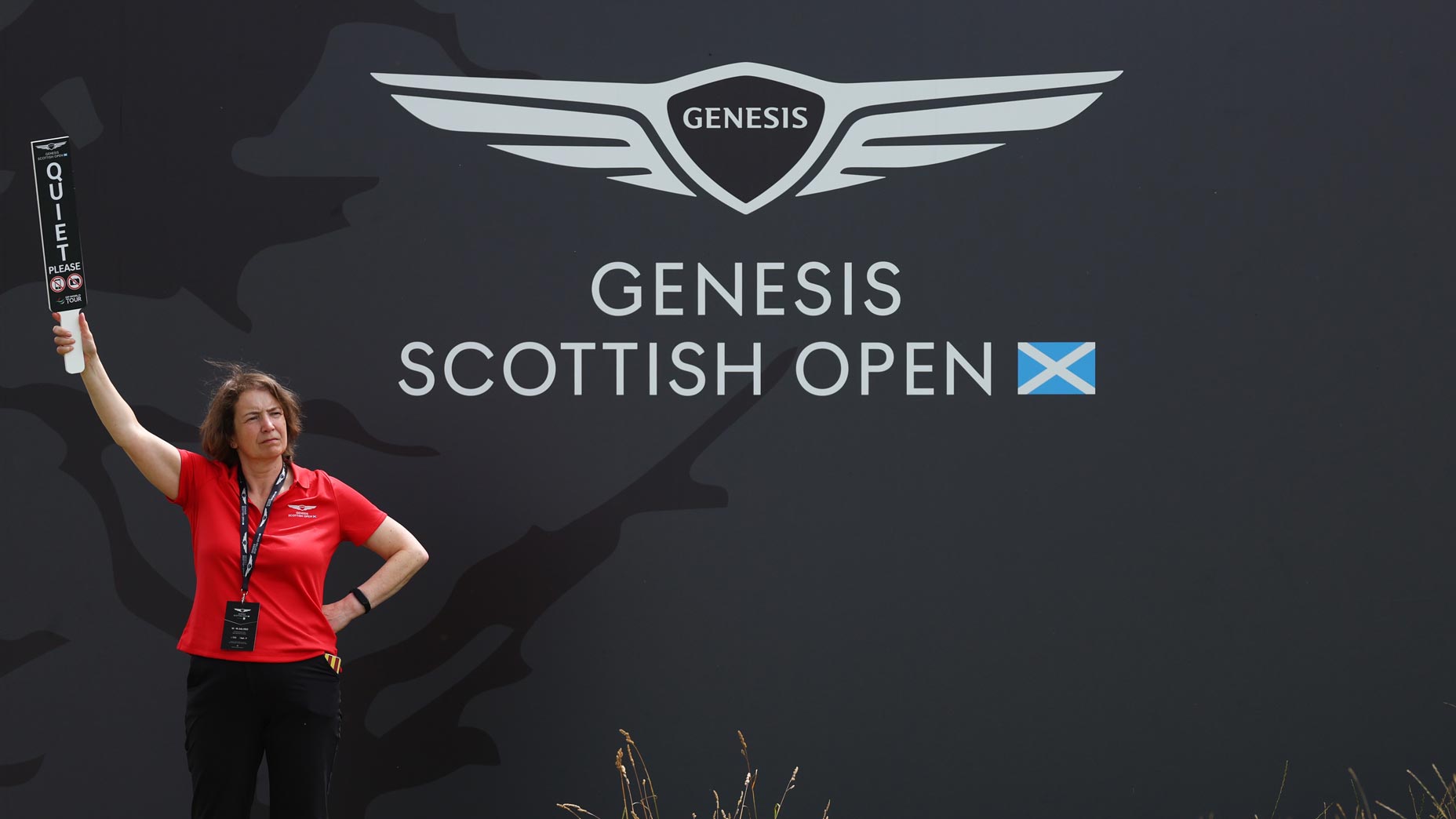Check in every Sunday night for the unfiltered opinions of our writers and editors as they discuss the hottest topics in the sport, and join the conversation by tweeting us @golf_com.
1. The Americans dominated the first morning of the Ryder Cup, but the rest of the week didn’t go as planned. Europe swept the afternoon fourballs and never trailed again, cruising to a 17.5 to 10.5 victory on Sunday in Paris. How did this happen to a team that owns 31 major titles and was the overwhelming favorite heading in? And so convincingly? Was the squad simply outplayed? Tired? Underprepared? Or some combination of all of the above?
Michael Bamberger, senior writer: Actually, I would say, overprepared except in one crucial area: course experience. Tiger of course was wiped out. Phil was slumping. The European play was often spectacular, but the Americans made it look even better.
Sean Zak, associate editor (@sean_zak): Outplayed, tired, underprepared, you name it. It’s gotta be a combination of all of those, and probably some more things, too. You don’t get beat like that and point to just one thing.
Jeff Ritter, digital development editor (@Jeff_Ritter): Agreed, but preparation jumps out above the others. Only Justin Thomas altered his schedule this year to play the French Open and get a look at the course. And while Europe brilliantly mixed and matched pairings (Rory played with Olesen, Poulter and Sergio, for example) Furyk more or less formed six twosomes and trotted them out. Once the U.S. lost that second session 4-0, Furyk was unable to dial anything up that felt fresh, the team around him tightened and it was effectively over.
Josh Sens, contributing writer (@Josh_Sens): I never thought of them as overwhelming favorites to begin with. This was a very strong European team, playing on home soil, and the Americans came into the event with a number of their key players (Reed, Spieth, Mickelson, for instance) in less than stellar form. In the end, they were outplayed, and, you could argue, out-strategized. But I don’t think this should be chalked up as a shocking loss.
Alan Shipnuck, senior writer (@Alan_Shipnuck): These guys figure out brand new major championship venues in three days. Plenty of Euros played the FedEx Cup. A bunch of American played crappy golf, simple as that. The most dominant golfer of all time and the world number one went 1-8…how does that happen? Koepka and Reed had losing records. Bryson and Phil got skunked. How many Americans can we say played well? JT, Webb, Finau, Spieth until singles. That’s about it. Practcially every Euro brought their ‘A’ game.
Dylan Dethier, associate editor (@dylan_dethier): I think underprepared is the right word, but not due to a lack of site visits. The Americans’ games truly didn’t mesh with the course and they couldn’t match the European moxie, whatever that means. They failed to adjust at all and paid the price. Team Europe, good on ya.
2. The last time the U.S. lost in Europe, in 2014 at Gleneagles, Phil Mickelson threw Tom Watson’s leadership style under the bus, and it set in motion an eventual task force and then a Ryder Cup committee, its purpose to get the U.S. back to winning. The formula worked in 2016 but this week’s result will raise yet more questions. Does the U.S. side need to rethink its roadmap again?
Zak: I don’t even really think they had a “formula.” Davis Love said he was going to be analytical at Hazeltine, and then he wasn’t. They won Hazeltine with sheer depth, which we once believed they had here in France. It’s not time to blow up the system they’ve put in place. Just refine it. While it’s a total cop-out to say they lacked an “attitude,” you all watched the matches. There was none.
Ritter: They’re 1-1 in the last two Cups, and it’s tough to win on the road. No need to blow it up. But the U.S. needs to take a long look at how they set pairings to give players their best chance to succeed. How do Tiger Woods, Phil Mickelson and Dustin Johnson combine to score one point? The U.S. still hasn’t found the team-building formula that continues to work for Europe.
Sens: That lack of “attitude” Sean mentions sure did seem evident this week. The broad-stroke characterization over the years is that the Europeans play as a team and that the Americans assemble as a group of individualists who just happen to be wearing the same outfits. Like a lot of generalizations, that’s a distortion with some truth to it. Tommy Fleetwood was quoted as saying this week that putting on his Ryder Cup team uniform was the proudest moment of his career. I think it’s fair to say that that is not an attitude that pervades the American side. I’m not sure you change that with a task force. But it would make for some good fun-poking and Twitter trolling if the Americans decide form another one.
Bamberger: I think player-driven teams make sense when you can control more things, most especially the course. On the road, you need something to compensate for that. What that is, I could not say. Maybe Tiger Woods will figure out, as captain, in Rome at Ryder Cup 2022.
Shipnuck: Nah, they just need to set up the Straits to favor the long ball and regain the Cup. By 2022, Stenson and Poulter will almost certainly have exited the stage, along with Casey. Sergio and Rose will be 42, Molinari 41. In the aggregate, the core Americans are a decade younger and this U.S. team is primed for the long-term.
Dethier: They need to do both less thinking, I’d say. Stop this task force nonsense! If it were up to me I’d scrap the Vice Captains, too, and make the players choose pairings themselves. Play ping-pong for it, for all I care. Any way these guys can get 10 percent closer to the level of Fleetwood-Molinari love and openness would be a boon for the U.S. side.
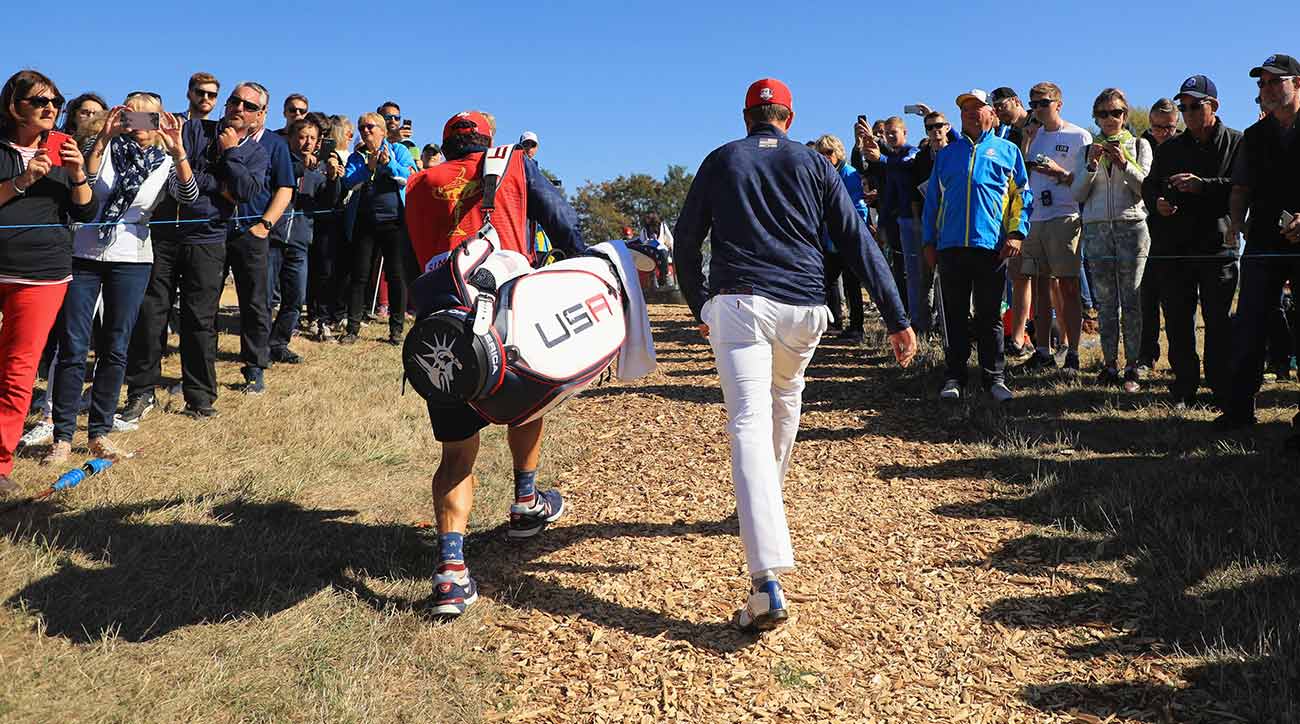
3. The watery, rough-choked layout at Le Golf National clearly did not play to the Americans’ strengths. How crucial was the course setup to the success of the European team?
Zak: It was crucial, sure, that Dustin Johnson and Brooks Koepka, Tony Finau, Bubba Watson and Justin Thomas couldn’t simply bomb their way around the course. But elite golfers are elite golfers, and you know you can skin this cat in so many ways. Looking at the leaderboard each day, I just saw too much blue and too little red — that is, too many bogeys and too few birdies. It was average golf for a lot of Americans, and their drivers weren’t allowed to help them break out of the rut.
Ritter: Huge factor. DJ was neutered. Tiger and Phil sprayed it all over the place. Putting normally tells the story at this event, but the U.S. missed so many fairways this week, it eliminated their chance to lose by missing more birdie putts than their opponent. Europe’s dominance started on the tee box.
Bamberger: HUUUGE.
Sens: European familiarity with the course surely must have helped them. But course setup? I dunno. I don’t buy this conventional theme that the Americans are bombers who need be somehow neutralized so that pea-shooting Europeans have a chance. Yeah. We’ve got a bunch of long hitters. So do the Europeans. Rory hits it forever. So does Rahm. Rose is not short. Neither are Casey, Stenson or Sergio. Or Fleetwood. Little Thorbjorn Olesen averages more than 300 off the tee. The Europeans won because they played better; not because they dink and dunked it around. I’m not sure why we seem to insist that the Americans have some kind of monopoly on power. You could argue that it’s part of our national character, to think we’re special in that way. I know that probably sounds annoying, a criticism conflating sports with national identity. But we conflate those two things all the time, and if we’re going to do it, we might as well accept the bad with the good.
Shipnuck: I wish someone had a stat for how many times an American slashed an iron or hybrid into the rough from the tee. For sure it hurt the U.S. team not getting to hit driver but even with shorter clubs their ballstriking was shaky.
Dethier: Seconding Sens and Shippy here. The bombers from the U.S. can’t hit it, y’know, straight?! A ton of their misses came from non-drivers off the tee, and their mid- and long-irons lacked the precision of the Euros. Style of play was huge.
4. Jordan Spieth was waxed 5 and 4 by European rookie Thorbjorn Olesen — dropping to 0-6 in singles during team events — Tiger Woods wasn’t able to put away rookie Jon Rahm, and Phil Mickelson dropped what proved to be the decisive match to Francesco Molinari. Which U.S. star most disappointed on Sunday?
Zak: It was Spieth! Sure, Thorbjorn played to a score of four under thru 14, but Spieth had no pop from the start. He made just one birdie and all but gave his match away with three straight bogeys on holes 4-6. It was a classic representation of his season — impress, then flop, then impress, then flop. Remember that 66 to kick-start Augusta? Damn that feels like forever ago.
Ritter: Spieth was the most surprising. Phil and Tiger put up a fight before both looked tired and broken coming down the stretch. But how is Jordan Spieth now 0-6? He really needs to win his Prez Cup singles match to avoid carrying that gorilla on his back to Whistling Straits.
Sens: Vegas had Molinari as more than a 2 to 1 favorite against Phil, so that was no surprise. Spieth was disappointing, sure, especially since he was up against a Ryder Cup rookie. But Spieth has been struggling all year. I’ll say Tiger. Anytime he loses a head to head match, it’s still a shock to me. Maybe that’s not fair, given all he’s been through. But that’s what happens when you’re Tiger Woods. Fairly or not, people expect a lot out of you.
Bamberger: I can’t say Spieth was disappointing — it suggests lack of effort. But it was a surprise. But so was Tommy Fleetwood losing to Tony Finau 6 & 5.
Shipnuck: It has to be Tiger. Or Dustin. The U.S. had a dream start, taking 2.5 points in the first three matches against three of Europe’s studs. Tiger, in match 4, could have redeemed his whole sorry week by beating Rahm — at that point the Cup would have been very tight. Even after he laid an egg the U.S. still had hope when Finau won the fifth match. If Dustin beats Poulter in match 6 hope is still very much alive. DJ is better than Poulter at pretty much every facet of the game, comically so tee-to-green. That Poulter took him down at such a crucial juncture tells us how different their internal organs are.
Dethier: Tiger, for sure. He lost every match he played! Just a week after his re-coronation at East Lake, Woods looked completely done in by his shortcomings in France. What a deflating way to finish off an otherwise fascinating, encouraging season.
5. Woods, who had played tournaments in seven of the previous nine weeks heading into the Ryder Cup, looked and sounded sluggish and emoted very little during his matches, prompting some observers to question his effectiveness as a team leader. How would you assess Woods’s overall performance?
Zak: I would say that he was both resilient and lackluster at the same time. The guy played four matches, 63 holes in total, and lead the match for three of those holes. Not good, mate. But he was resilient. He did battle back in each one of those matches. That’s why I think Furyk started him Saturday afternoon. He felt like he was bound to pull one of them off.
Ritter: I think Woods was the stronger partner in each of his three pairings (Reed twice, DeChambeau once), but had the bad luck of running into Moliwood all three times. I thought he’d win his singles match, and he did well to get it back to square on the 12th hole. But on 13 and 14 he just looked tired while making two bogeys. He’s played a lot of golf this month.
Sens: Ryder Cup records aren’t always a fair reflection of an individual’s performance, and I don’t think Tiger was quite as awful as his record. But his record was 0-4, and he was pretty bad.
Bamberger: Woods will grow into a leadership role, over time, I suspect. But now his focus is on his own golf. Giving doesn’t come naturally to him.
Shipnuck: Total, complete disaster.
Dethier: Tiger played fine. Not great, no, but fine. It’s his effect on his playing partners that seemed more damaging — Reed looked to be on 90 watch Saturday morning during the fourball. Woods’s light may shine too bright for those around him. But I’d love to see him getting more emotional on the course, even if he had to fake it. That eagle at No. 9 was cool today, though. There was hope for a close match, for a moment.
6. Congratulations, you’ve just been named the 2020 U.S. captain. What’s your first move to ensure the Americans get back on track?
Zak: First move I’m making is leaving that position. It’s perhaps the worst spot to be at in golf. The pressure, the decisions, endless appearances, awkward press conferences, benching friends, etc. As much as the state of Wisconsin would rally around me, I’ll have to pass.
Ritter: I learned in the European’s victorious press conference that it’s important to both start a team WhatsApp channel and draw motivation from Shipnuck’s GOLF columns. Also, I’d cut out all the rough at Whistling Straits and play it at 8,000 yards. I know the Euros have plenty of big hitters, but I’d want the U.S. to *believe* the course is set up to their advantage.
Sens: I immediately cede my captaincy to Bill Murray on the condition that he select all captain’s picks out of a hat. If that didn’t lighten the atmosphere, maybe break out some of that hybrid grass Carl Spackler loved so much.
Bamberger: I’d forgo all captain’s picks. Just make the team on a points, more points closer to the event. Get rid of all that high-minded more-serious-than-war stuff. The whole thing would be better at a cooler temp.
Shipnuck: Name Tiger and Phil vice captains and quietly let them know there’s no way they will get a captain’s pick. And try to surgically implant Justin Thomas’s fighting spirit into DJ and Koepka.
Dethier: Don’t change anything. The U.S. will win at Whistling Straits. It’s just 2022 that’s an issue.


